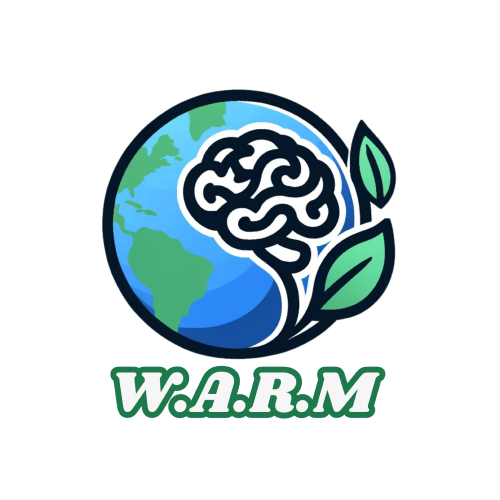
WARM
Nowadays, climate change is the number one ecological crisis, which expands, also, to other aspects of our everyday life. One of these aspects is, as research shows, our well-being and mental health. However, this project will mainly focus on the anxiety, which is provoked by the climate change and ecological disaster. Moreover, the term that the research community uses for this type of anxiety is Eco-anxiety. So, as Eco-anxiety is defined by the American Psychological Association (APA) as the chronic fear of environmental downfall. More specifically, eco-anxiety stems for the fear about the current and future disaster of the environment, caused by human-induced factors, which also provokes climate change.
This fear, of course, is tightly linked to a rapidly growing awareness of the direct and indirect consequences of climate change on humans, stemming from extreme weather conditions extreme physical phenomena, such as floods, fires, rising of the sea levels, and a potential loss of human lives.
Therefore, while the term eco-anxiety is relatively recent, the idea that it is based upon, which is the concern about the “health” of the environment is not new at all, as it exists for decades now. However, this type of anxiety is not designated as a specific clinical anxiety disorder in none of the editions of the Diagnostic and Statistical Manual of Mental Disorders-DSM (Nugent, 2019), meaning that mental health workers do not officially consider it a diagnosable condition. In addition, there is still a lack of research about eco-anxiety, as well as about their relation to other psychological impacts of the ecological crisis. While it is clear that many people suffer from eco-anxiety, how should mental health care professionals respond to them? Since the mental health impacts of climate change and other ecological crises are estimated to be very significant (Bourque, et. al., 2014; Berry, et. al. 2018) there is a strong need for a growing understanding about them and collecting useful tools in order to reduce the distress people experience.
This project aims to help professionals on the mental health sector (psychologists, counselors, psychiatrists, therapists, etc.) in understanding the newly received term of eco-anxiety, as well as the symptoms that people experience. Mental health workers will be well trained on a training material, which will be generated by the people who go through eco-anxiety symptomatology themselves. Moreover, this project aims to gather all national communities and actors on Mental Health in each partner country, in order to raise awareness about this form of anxiety and take action by promoting Recommendations on officially classifying eco- anxiety as a disorder under the general umbrella of Anxiety Disorder inside the Diagnostic and Statistical Manual of Mental Disorders-DSM. These Recommendations will be gathered and distributed among major Federations and Associations relevant to mental health and well- being around Europe (e.g. European Association of Psychotherapy), in order to be taken into consideration.
Therefore, while the term eco-anxiety is relatively recent, the idea that it is based upon, which is the concern about the “health” of the environment is not new at all, as it exists for decades now. However, this type of anxiety is not designated as a specific clinical anxiety disorder in none of the editions of the Diagnostic and Statistical Manual of Mental Disorders-DSM (Nugent, 2019), meaning that mental health workers do not officially consider it a diagnosable condition. In addition, there is still a lack of research about eco-anxiety, as well as about their relation to other psychological impacts of the ecological crisis. While it is clear that many people suffer from eco-anxiety, how should mental health care professionals respond to them? Since the mental health impacts of climate change and other ecological crises are estimated to be very significant (Bourque, et. al., 2014; Berry, et. al. 2018) there is a strong need for a growing understanding about them and collecting useful tools in order to reduce the distress people experience.
This project aims to help professionals on the mental health sector (psychologists, counselors, psychiatrists, therapists, etc.) in understanding the newly received term of eco-anxiety, as well as the symptoms that people experience. Mental health workers will be well trained on a training material, which will be generated by the people who go through eco-anxiety symptomatology themselves. Moreover, this project aims to gather all national communities and actors on Mental Health in each partner country, in order to raise awareness about this form of anxiety and take action by promoting Recommendations on officially classifying eco- anxiety as a disorder under the general umbrella of Anxiety Disorder inside the Diagnostic and Statistical Manual of Mental Disorders-DSM. These Recommendations will be gathered and distributed among major Federations and Associations relevant to mental health and well- being around Europe (e.g. European Association of Psychotherapy), in order to be taken into consideration.
